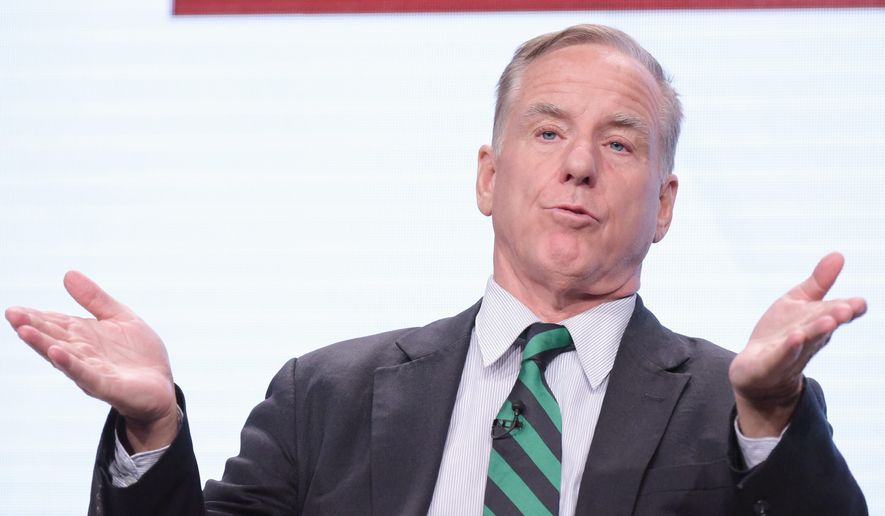ATLANTA — Howard Dean has gone from rage to sage.
More than a decade after the infamous “Dean scream” in the Iowa caucuses crippled his presidential dreams, the former Vermont governor has become one of the wise old men of the Democratic Party.
Party leaders are looking to his four years as Democratic National Committee chairman, starting in 2005, as a blueprint as they once again try to figure out a message and strategy that can reach all parts of the country.
“The track is round, right?” Peter Buttigieg, mayor of South Bend, Indiana, told The Washington Times Thursday. “What seemed crazy back then, the idea that we needed to compete in all 50 states, has now come to be gospel and the reason is it worked.”
Mr. Buttigieg is one of the candidates seeking Mr. Dean’s old job, which he left in 2009 after having overseen electoral victories in 2006 and 2008.
The years since have seen the party struggle, culminating in a contentious 2016 nominating convention, the ouster of the DNC’s chairwoman and the eventual loss in the presidential election.
The DNC will vote on new leadership Saturday, and the front-runners for the job — former Labor Secretary Tom Perez and Rep. Keith Ellison — are rehashing the same compete-everywhere theme Mr. Dean stressed when he ran the party.
“Beyond a 50-state strategy, we need a 3,143-county strategy,” Mr. Ellison says on his campaign website.
From 1991 to 2003, Mr. Dean served as governor of Vermont. In 2004 he emerged as the party’s most liberal candidate for president — much like fellow Vermonter Sen. Bernard Sanders did last year — running against the Iraq War and the party establishment and pioneering online fundraising.
His presidential aspirations, however, unraveled after a third-place finish in Iowa.
He would come back as party chairman, elected in 2005, the last time the DNC was licking its wounds from a presidential defeat.
Mr. Dean took the advice of members of the Association of Democratic Chairs by adopting the 50-states strategy, which now is credited with laying the foundation for the Democratic takeovers of the House and Senate, President Barack Obama’s win in 2008 and a slew of other victories that left them in control of 27 state legislatures.
Since 2010 the Republican Party has been undoing those gains, and Democrats once again are struggling with being a party largely confined to the Northeast and far West.
John D. Daniello, chairman of the Delaware Democrats, said Mr. Dean got things right when he told his party to concentrate on winning down-ballot races and stop getting wrapped up in the personalities at the top of the ticket.
“I have been one arguing that we should have been listening to what he put in place long ago,” Mr. Daniello said. “He was right then, and every election that goes by, he is proven right again.”
Mr. Dean flirted with the idea of running for DNC chairman, but he pulled his name out of the running last month and endorsed Mr. Buttigieg this week.
“This is not an ’inside the Beltway’ party, and we can’t win it with an ’inside the Beltway’ chairmanship,” Mr. Dean said.
Daniel J. Parker, who served as chairman of the Indiana Democrats from 2004 to 2011, said Mr. Dean benefited from being a state executive.
“He wasn’t of Washington,” Mr. Parker said. “He knew that the proper influence of the party should be out in the states and not on the inner workings of what is happening in D.C., and that was the difference — was that we went from a party that was focused on the states to a party that was focused on Washington and the Washington agenda.”
Mr. Parker said Democrats in his state have been wiped out since Mr. Obama won Indiana in 2008. They’ve surrendered three congressional seats and went from a 52-seat majority in the Indiana House to holding just 31 of the 150 seats in both chambers combined.
Jaime Harrison, chairman of the South Carolina Democrats, attributed some of Democrats’ struggles to the financial burden the DNC inherited when Obama for America (OFA), Mr. Obama’s campaign machine, was folded into the party.
“When Barack Obama had his hand on that Bible taking the oath of office, we had the majority in the House, the Senate, the White House; we had the majority in governorships, in secretaries of state, in attorneys general. We controlled both local and national,” Mr. Harrison said in a CNN debate this week. “And what happened at that moment? OFA remained. The debt from President Obama’s campaign went to the DNC, and the money that Howard Dean had placed into state parties decreased almost to zero.
“State parties in this country,” he said, “are broken.”
• Seth McLaughlin can be reached at smclaughlin@washingtontimes.com.




Please read our comment policy before commenting.